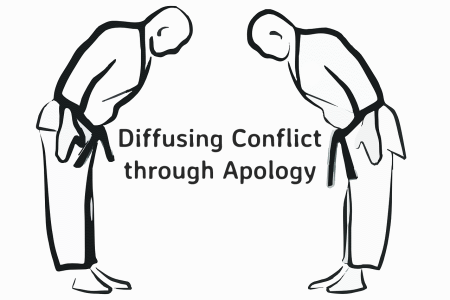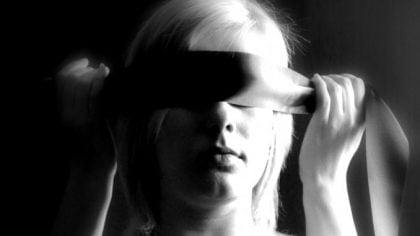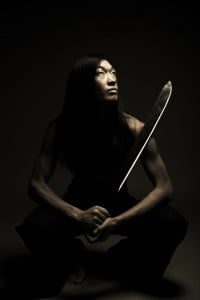
Recently, a handful of people took issue with what I shared and posted, accusing me of being ignorant, nasty and discriminative. This was a post about a disabled martial artist’s journey of challenges and I pointed out how most people would make excuses to give up, while this martial artist persevered. Many felt that I had done nothing wrong and shouldn’t have made a statement of apology with clarifications. But I apologised nonetheless.
It wasn’t because I secretly blamed myself. Nor was it because I had no backbone to stand behind my words.
Apologising was a means to diffuse an escalating conflict, where people were taking my words out of context, selectively interpreting what I was trying to say and then resharing my supposed trespasses against less-fortunate people. Apologising was a means to switch the mob-mentality of blind attacks to one that was receptive to listening, thereby ending the conflict. Apologising was also a means to protect certain people from being harassed.
In any case, this got me thinking about a few things.
- Were there cultural differences in how an apology is regarded, since it seemed as though my apology and clarification statement was regarded as self-blame?
- Was my response to the conflict appropriate as an individual whose goal is to guide people into their personal journey of martial arts, fitness and movement? And was I true to being a martial artist who practices Aikido?
Cultural Differences in How an Apology is Perceived
The following is what I understood of Cultural Differences in the Function and Meaning of Apologies (by William W. Maddux, Peter H. Kim, Tetsushi Okumura and Jeanne M. Brett) that explained how an apology is perceived in different cultures. In cultures that emphasise harmony and homogeneity, an apology is regarded as a sign of general remorse than an assignment of self-blame; conversely, cultures that emphasise individuality regarded an apology to be an admission of wrong-doing. This was why, in a survey conducted, the Japanese were found to have apologised more often than the Americans, even for things that were not their fault.
This I believe has implications on people who are training in Japanese martial arts, where the cultural practices influence the martial artist. To me, an apology was a melding of self-reproach and general remorse, depending on the situation at hand.
Was my apology and clarification statement consistent with my values as a person and Aikidoka?
Naturally, when I saw the negativity, I was confused and angry. Anyone would be. But I chose to hold off a reactionary response as it would cause more damage. Instead, I tried to look into the validity of their criticisms and be understanding of whatever struggles that they were going through that would cause them to have such a response. While I could understand a few rational responses, I found some to have made snap-judgments based on their selective-reading and insecurities. The rest were jumping on a bandwagon and parroting the views of the outspoken.
That was when I let loose a string of F-bombs and vulgarities native to my country; I’m only human. In way of analogy, I found it absurd to apologise to people who stroll into my garden to take a piss because they misread the toilet sign.
But after calming down and thinking things through rationally, I realised that some of them were behaving rudely because they thought that they were being targeted. As much as it was a stretch as to how my words could be construed as discriminatory or targeted against these people, sometimes when you have struggled with certain lifelong problems, you automatically adopt a victim’s mentality and assume the world is against you. While I was not a doormat to be stepped all over on by the insecure, I sought to be compassionate because there were times in my life that I behaved like an idiot after being worn out by melancholy and unyielding personal problems. Moreover, how could I, as an individual who sought to motivate and help others in their warrior journey, claim to do so if I couldn’t change my reaction to negativity and sink into the chaos? An eye for an eye makes the world go blind, as Gandhi so succinctly said.
So, when I made the apology, it was to indicate that I was listening to their views and to make them receptive to listening to mine.
What helped with dealing with the situation was the principle of Aiki. As Aikidoka, we seek a resolution to conflict before it begins; we blend with the opponent’s attack to redirect the momentum and force. Sensei had mentioned this numerous times in the dojo – when someone insults you, smile at them and say ‘thank you’ before walking away. But in no uncertain terms, when it comes to a situation where a fight is unavoidable, there should be no hesitation to end the encounter.
Maybe the situation has died down, maybe not. But there’s no point in anticipating attacks to defend against.
What are your thoughts on apologising and conflict resolution?




![The World is a Dangerous Place… Are You Prepared? [Perspective]](https://www.wayofninja.com/wp-content/uploads/2017/05/political-breakdown-1971741_1280-420x280.jpg)